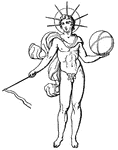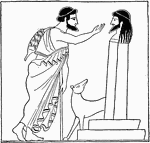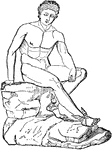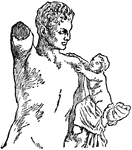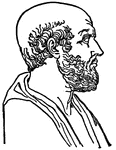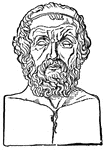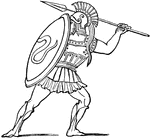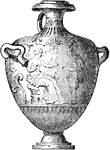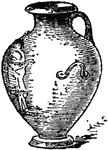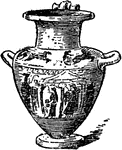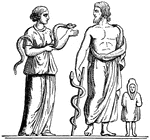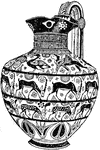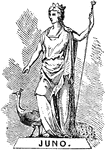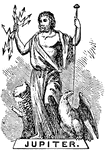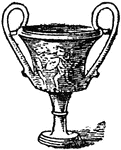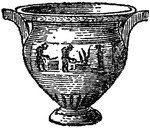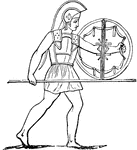
Greek with shield
"In the Homeric times, the Greeks used a belt for the sword, and another for the shield. These passed…
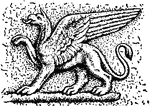
Griffin
"Griffin, from a Greek Sarcophagus. GRIFFIN. In mythology, an imaginary animal supposed to be generated…

Greek Griffin
The Greek Griffin is associated with Antiquity and fire, usually appears on Candelabras and friezes.…
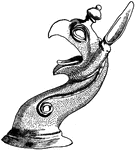
Gryphon
"The griffin is a monster with the body of a lion, the head and wings of an eagle, and back covered…
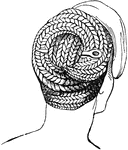
Platted hair
"The mode of platting the hair, and then fastening it with a pin on a needle, is shown in the annexed…
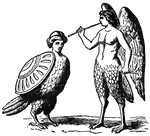
Harpies
"These were disgusting birds, with the heads of maidens, with long claws and faces pale with hunger.…
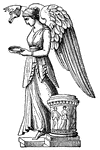
Hebe
"When once the mortal part of him has perished, Juno lays aside her enmity and marries him to Hebe,…

Hecate
"He promised her marriage, and as they stood before the alter of Hecate, called the goddess to witness…
Combat Between Achilles and Hector
A depiction of the mythological combat between Achilles and Hector.

Crested helmets
""The crested Achilles was pressing on in his chariot." Some idea of the ancient crests may be formed…

Herculaneum
"In the following we have back and front views of the heads of statues from Herculaneum, on which we…
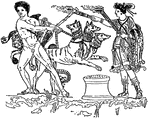
Hercules and Cerberus
"Hercules descended into Hades, accompanied by Mercury and Minerva. He obtained permission from Pluto…
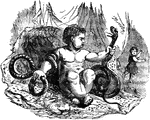
Young Hercules
"Hercules, a Theban prince, was another of the descendants of Pelops. The numerous and extraordinary…

Bust of Herodotus
"The first writer who deserves the name of a historian is Herodotus, hence called the Father of History.…

Profile Bust of Herodotus
Herodotus of Halicarnassus was a Greek historian who lived in the 5th century BC (c. 484 BC–c.…

Roman hinges
"The Greeks and Romans used hinges exactly like those now in common use. The following cut exhibits…

Bust of Homer
"Of the Homeric poems the Iliad and the Odyssey were the most distinguished and have alone come down…
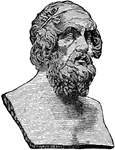
Bust of Homer
Homer is traditionally held to be the author of the ancient Greek epic poems the Iliad and the Odyssey,…
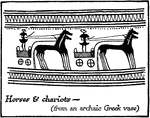
Aryan Speaking People, Horses and Chariots
From an archaic Greek vase, a picture of horses and chariots.
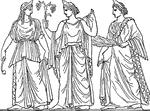
The Hours
"In the evening Aurora came, accompanied by the Hours and the Pleiades, and wept and lamented over her…
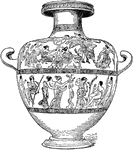
Hydria
A hydria is a type of Greek pottery used for carrying water. The hydria has three handles. Two horizontal…
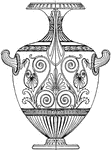
Greek Hydria
The Greek Hydria is used as a water-pot to carry water with from springs. Maidens carried it on their…

Greek Hydria
This Greek Hydria has a Kalpis form that is smooth and painted in black and red figures on the shoulder.…

Greek Hydria
This Greek Hydria is painted in black, reddish brown and white. Decorated of the highest class, the…

Hygieia
"In the classical mythology, the goddess of Health- the daughter of Aesculapius. She was worshipped…

Hymen
"Hymen had been called to bless with his presence the nuptials of Orpheus with Eurydice; but though…
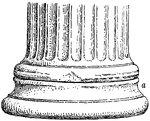
The Base of an Ionic Column at the Erechtheum
The base of the column, torus, displays a concave molding called a scotia. This type of base was not…
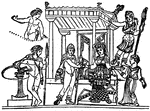
Iphegnia delivers letter to Pylades
"What in this letter is contained, what here, Is written, all I will repeat to thee, That thou mayst…
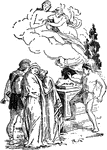
Rescue of Iphigenia
"When she was about to be slain at the altar, Artemis intervened and carried her off in a cloud to be…
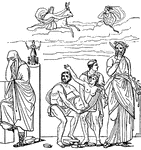
Sacrifice of Iphigenia
"When she was about to be sacrificed the goddess relented and snatched her away, leaving a hind in her…

Iris
"Iris puts on her robe of many colors, and tingeing the sky with her bow, seeks the palace of the King…

Isocrates
"Isocrates was the son of a prosperous flute-maker; he was born at Athens B.C. 436, and lived till 338.…

Italo-Greek Earring
"An Italo-Greek earring showing great craftsmanship." —The Encyclopedia Britannica, 1910
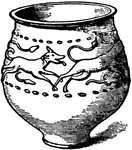
Jar
An illustration of a "jar of Castor ware with reliefs of a stag pursued by a hound, executed in semi-fluid…

Antique Jar
This antique jar belongs to the later period of the red figure style used in Greek figural paintings.
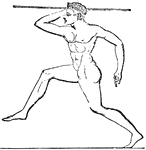
Hurling the javelin
"The Olympic games were of greater efficacy than the Amphictyonic Council in promoting the spirit of…
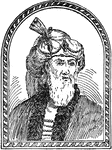
Flavius Josephus
"Flavius Josephus was a strange amalgamation of Jew, Greek, and Roman, admittedly not what he should…

Julian
"Thus the prince, both when present and when coming, was alike victorius: and these things he achieved…
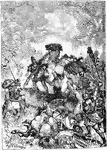
Death of Julian the Apostate
A depiction of Julian the Apostate, a noted philosopher and Roman Emperor, and his death.


